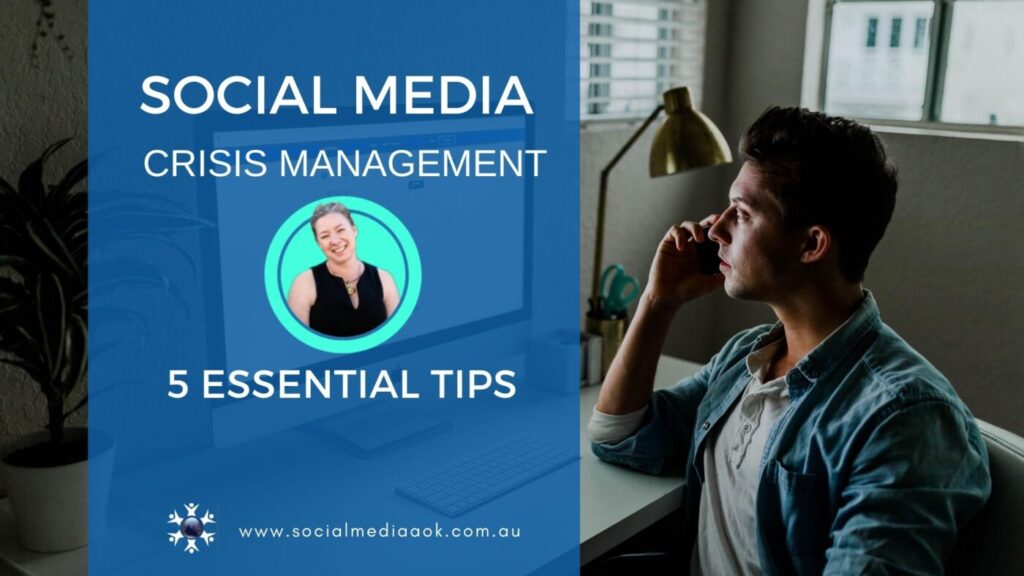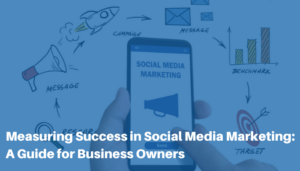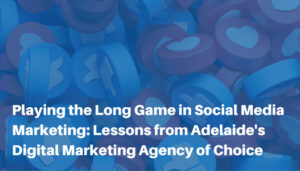Social Media Crisis Management:
5 Essential Tips
When a crisis occurs, the need to communicate effectively with your audience becomes urgent, and Social Media Crisis Management is especially important to master in today’s digital world.
Whether real or not, a perceived crisis can spread rapidly which may cause significant damage to your brand, organisation or business. Social media can add a layer of complexity to any crisis, and many businesses may find it challenging to navigate through successfully in the event of an emergency.
So, if you’re facing the daunting task of managing a crisis via social media for your business, we hope you find Social Media Crisis Management: 5 Essential Tips a helpful resource for when you need to take action.
And remember, for additional help you can contact Digital Marketing AOK for guidance. We provide professional social media management, classes and one-on-one training.
Here are 5 Essential Tips to follow during a crisis.
TIP #1. Focus On The Message
While it may be easy to make a quick decision and post on social media without a lot of thought. However, during a crisis, it’s crucial to take a step back and strategically craft an appropriate message. Although you still want to provide a timely, honest update, it’s a delicate balance between acting fast and delivering a well though out, informative message. Keep in mind that your customers may already be upset, confused or unsure what to do, so providing a detailed and thoughtful update is important to avoid confusion, anger or unnecessary follow up.
TIP #2. Monitor Your Channels
During times of crisis, it’s important to monitor social media regularly. Quite often people will learn about a crisis through social media, and react quickly. Regularly monitoring your channels, as well as what is trending generally, provides for a proactive look at trending topics and craft messages specific to a crises allowing you to tackle challenges as they happen.
TIP #3. Listen To & Respect Your Audience
While it can be easy to forget, social media channels should serve as both a resource for delivering content and provide a platform for audience engagement. Paying attention to your fans and followers as they interact with your brand can give you insight and understanding – especially important during a crisis. Listening to your audience and responding with a solution, pertinent information and/or empathy can help to alleviate and educate your audience while providing them with a positive experience.
TIP #4. Don’t Be Afraid, Engage!
Often, it can be difficult deciding how to respond to your followers during a crisis, but it’s important that your response is well-thought-out and directly addresses the concern at hand. Depending on the situation, it might be appropriate to publish a quick, proactive response across multiple channels, reply to a single user privately or wait a little longer to publish a more detailed and accurate response. Plan to engage with your audience through thick and thin rather than going radio silent in the middle of a crisis.
Enable your crisis communications plan to include the following:
- Communicate with honesty, candor and openness while acknowledging risk
- Collaborate and coordinate with credible sources
- Meet the needs of the media and remain accessible
- Communicate with compassion, concern and empathy
- Accept uncertainty and ambiguity
TIP #5. Remember Using Social Media Effectively Can Be Very Helpful In A Crisis.
In today’s digital economy, utilising social media can be paramount when working through a crisis. Whether internal or external, integrating social media into your crisis communications response is non-negotiable in the 24-hour news cycle.
Need assistance with your social media crisis management communications? Contact Digital Marketing AOK for professional social media management, classes and one-on-one training.






